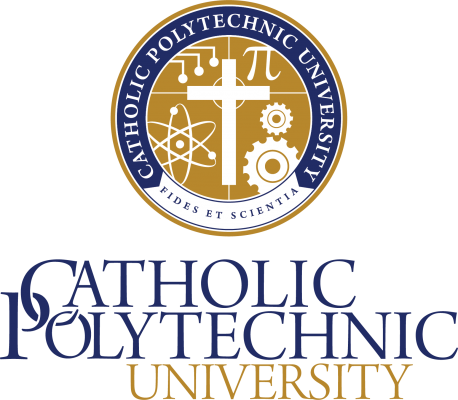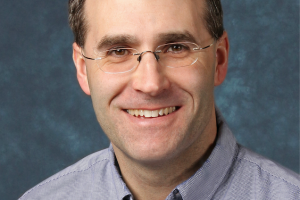A 2017 national survey stated that up to 74% of Catholic youths and teens (between 12 and 20 years old) will leave the Church before their 21st birthday. Some will come back to the Holy Apostolic Church later in life, and some with join a Protestant or Evangelical church. Unfortunately, many will never return to fellowship with the Lord and His church. This recent trend should have Catholic parents worried.
It is true that there are several quality (and faithful) Catholic universities and colleges within the country, however most of them are focused on either a Liberal Arts or a Business program. But what does a Catholic high school junior or senior look forward to if they are seeking a STEM (Science, Technology, Engineering, Math) degree and career?
 This question has been at the forefront for many people in recent years, including Jennifer Nolan, Ph.D., a cognitive scientist and college instructor from the Los Angeles area. Nolan is the Co-Founder and President of the newly formed Catholic Polytechnic University (CPU).
This question has been at the forefront for many people in recent years, including Jennifer Nolan, Ph.D., a cognitive scientist and college instructor from the Los Angeles area. Nolan is the Co-Founder and President of the newly formed Catholic Polytechnic University (CPU).
Catholic Business Journal recently spoke in depth with Nolan about her plans and vision for a STEM-focused 4-year Catholic college.
Catholic Polytechnic (CPU) is currently formed as a 501c3 nonprofit institution and will begin with a few select online (adult) certification courses as it finalizes its plans for its undergraduate brick-and-mortar college campus in the Los Angeles vicinity.
Nolan is now assembling an administrative team and working towards CPU becoming a degree-granting, licensed institution.
Nolan selected greater Los Angeles due to her roots in the area and also to the simple fact that there are 4.4 million Catholics in Los Angeles County.
CPU will not be a religious/Bible college nor a seminary. However, the university will be a real “spiritual mission.”
According to Nolan, “It is our goal that Catholic Polytechnic University will provide daily Mass, sacraments, spiritual mentors, on-campus religious orders and/or priests and nuns, Catholic catechism, and hopefully Adoration of the Blessed Sacrament. Ex Corde Ecclesiae, the Newman Guide checklist, and the Ten Commandments will be our guides. We hope to be included in the Newman Guide’s Recommended Colleges list.”
In the collegiate landscape across the nation there appears to be a notion that faith and science/technology are incompatible, and according to Pew Research Center, this apparent disconnect is the primary reason people give for leaving their faith. Of course, this incompatibility is simply not true, as most people would admit after doing some earnest research on the topic.
Nolan adds, “Catholic Polytechnic University will be a polytechnic university with an emphasis on academic strength, potential earning, and job placement. The culture of the university and Philosophy/Theology courses will be distinctly Catholic, and STEM courses provided will reflect a direct relationship between science and faith”.
Examples of likely course titles in the works include:
- Introduction to Computer Programming
- Server-side Web Programming
- Data Structure and Algorithms
- Computer Architecture
- Cyber Security
- Philosophy of Science
- Electromagnetism
- Electrical Engineering Applications: Sensors, embedded and IOT
The school will also likely have courses and concentrations in Business, Sciences, Engineering, Math, and Bioethics.
“I am certain that some of these components exist in other Catholic universities across the country, but I believe Catholic Polytechnic is the first Catholic university in the U.S. to make the STEM/Business offerings as the primary focus of its founding mission,” states Nolan.
Faith and STEM: Compatible?
Can the Catholic, Christian faith truly function alongside science and technology? Absolutely!
Key Catholic public figures including Bishop Robert Barron, Br. Guy Consolmagno, and Fr. Robert Spitzer, S.J. work to perpetuate this connection.
“Let’s not forget such scientific-minded Catholics throughout the ages such as Blessed Niels Stenson (anatomist and priest who made many geological discoveries), St. Anatolius of Alexandria (a lay scientist and scholar who wrote 10 books on mathematics and who was highly praised for his scholarship by St. Jerome), Blessed Herman the Cripple (a Benedictine monk and genius who studied and wrote on astronomy, theology, math and more, and who built astronomical equipment), to name just a few,” adds Catholic Business Journal publisher Karen Walker.
Will enough students be interested?
Another practical question is whether there are there enough strong and dedicated Catholic high schoolers who want to attend a Catholic university but who also want to learn what is needed for a successful STEM career?
According to the 2016 U.S. News/Raytheon STEM Index: across the U.S., the demand for these degrees is high.
By providing Catholic STEM degrees, Dr. Nolan hopes to help rebuild the Catholic church from the inside, out. Graduates will be able to take advantage of careers in demand, with high socio-economic income, become innovators and strong business people, be able to financially support large families, and ultimately usher more money and people back into the Church.
Nolan and the Advisory Board at Catholic Polytechnic University believe that God will assist and allow the complete opening of CPU in due time. Several donors have expressed interest in helping the school achieve its goals.
Is 2020 the year that the country is ready for a fully integrated Catholic and science/ technological college?
It is not an easy endeavor, but perhaps the timing has never been better. The U.S. Catholic Church needs schools like Catholic Polytechnic University to succeed.
Learn more at: catholicpolytechnic.org
—————————-
Ken Lambert has been heavily involved in construction, sales, real estate, and as an advocate for mental health for more than 25 years. He holds a U.S. Patent for a type of loan software program, and is an established writer, consultant and speaker in several fields. He has written for both secular and religious publishers, including a book he co-wrote entitled Top Ten Most Influential Christians since the Apostles.



You must be logged in to post a comment.